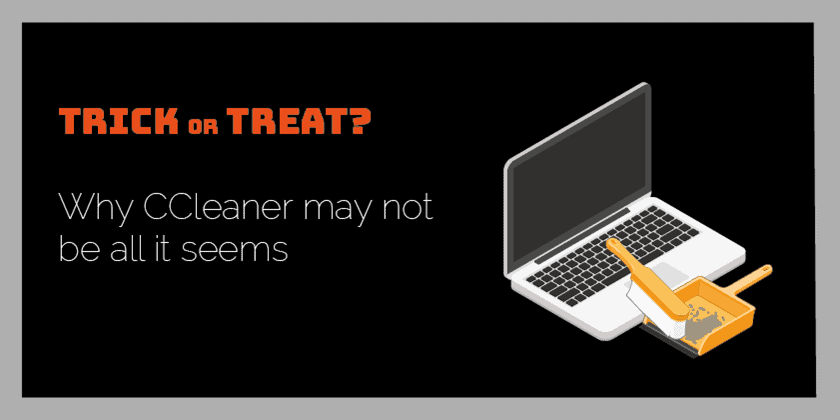News broke last month that hackers have successfully managed to breach the popular computer cleaning software – CCleaner.
Having found a backdoor into the software, cyber-criminals injected the application with Malware and distributed it to millions of users. For those not in the know, Malware is malicious software – the most popular type being the now infamous Ransomware. It refers to Viruses, Worms, Trojans, Spyware and other malicious programs. Once Malware is installed onto a device it can be used to demand money by locking the user out of their device or encrypting files, or it can run silently in the background collecting data and personal information. It can also be used to control the device remotely – as is the case with DDOS attacks.
According to Avast, CCleaner has been downloaded more than 2 billion times making it a prime target for cyber-criminals. The software was created to wipe out cookies and offer some web privacy protections. However, “For a period of time, the legitimate signed version of CCleaner 5.33 being distributed by Avast also contained a multi-stage malware payload that rode on top of the installation of CCleaner,” say security researchers at Cisco Talos.

Up to 2.27 million users downloaded the malware stricken software but Avast Piriform says it has eliminated the threat of the malware harming customers’ devices and compromising their personal details. “Piriform believes that these users are safe now as its investigation indicates it was able to disarm the threat before it was able to do any harm,” said an Avast spokesperson.
The particular strain of malware used in CCleanner appears to have been designed to remotely access infected devices and utilise these as part of a botnet whilst also sending information back to the attackers. It has been stated by Avast upon investigation that this was a targeted attack aimed at high-tech and telecommunications companies. The purpose of the attack was not to target consumers and their personal data but more so corporate networks and large enterprises. You can find a full list of affected companies here.
An unusual attack which we could see more of in future?

With CCleaner being such a popular software for users trying to keep their computers safe and virus free, hackers have taken full advantage of the inherent trust between software users and vendors. Many users’ automatically trust software vendors to provide virus free installation files and trust the servers delivering such software to provide updates which are also virus free and for the benefit of the device and its user. Now we are left wondering if we are to see an increase in compromised software for download.
The common advice amongst many vendors and cyber security experts alike is to download Anti-Malware and Virus protection software and continuously keep software updated to avoid an attack. But this is not the first time that software/updates have been compromised and injected with malicious code – and it is sure not to be the last. If past events have taught us anything, it is that hackers are consistently on the ball when it comes to new ways of targeting and luring users into trusting their scams. Earlier this year, Ukrainian company MeDoc was hacked and its update servers used to distribute the Petya ransomware. Hackers appear to be actively utilising these types of distribution platforms to more easily spread Malware. This is opposed to the traditional method of targeting individual machines. This is a trend we can surely expect to see grow over the coming months and years and one which we can assume many security researchers will be keeping a close eye on.
What do you think of the current state of cyber security? Are companies prepared enough to tackle these types of issues head on before they become a problem with worldwide effects?







